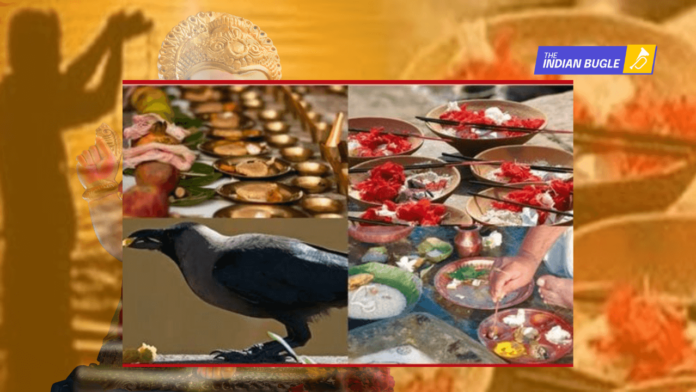Pitru Paksha, a sacred 16-day period in the Hindu calendar, is dedicated to honoring and offering gratitude to one’s ancestors. During this time, special rituals like Shradh and Tarpan are performed with utmost devotion. Along with rituals, food plays a significant role, and certain items are strictly avoided to maintain purity and sanctity.
Here’s a detailed list of foods you should avoid during Pitru Paksha and the reasons behind these restrictions:
1. Pulses and Legumes
Chickpeas, Black Chana, Masoor Dal, Black Urad Dal
These pulses are considered heavy and difficult to digest, making them unsuitable for offering to ancestors. Avoiding them ensures simplicity and purity in meals.
2. Seeds and Condiments
Black Mustard Seeds, Cumin Seeds, Black Salt
These items are regarded as strong and pungent, associated with tamasic (low-energy) qualities. They are avoided to maintain sattvic (pure) vibrations during rituals.
3. Vegetables
Bitter Gourd, Cucumber, Mustard Greens, Potatoes, Colocasia (Arbi), Radish, Brinjals
These vegetables are either bitter, pungent, or considered tamasic. Root vegetables like potatoes and arbi are believed to absorb negative energies, hence are avoided.
4. Tamasic Foods
Onion, Garlic, Brinjals
These are classified as tamasic foods that increase lethargy, aggression, and impurities. Avoiding them ensures clarity of mind and a sattvic lifestyle during rituals.
5. Grains
Rice, Wheat, Chana Sattu
These grains are often avoided as they are considered unsuitable for Shradh rituals. Instead, barley, sesame, and other sattvic grains are preferred.
6. Addictive Substances
Paan, Supari, Tobacco
These are seen as impure and are strictly prohibited, as they do not align with the sanctity of Pitru Paksha offerings.
7. Stale Food
Consumption of stale food is strictly forbidden. Freshly prepared sattvic meals are a must, as stale food is considered impure and unfit for both offering and consumption.
Conclusion
The dietary restrictions of Pitru Paksha are not just about avoiding certain foods; they hold deep spiritual significance. The emphasis is on consuming sattvic meals that are pure, light, and freshly prepared. By following these guidelines, devotees ensure that their offerings to their ancestors are made with utmost purity, devotion, and respect.
